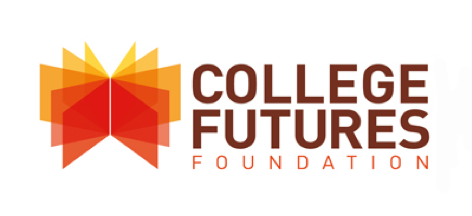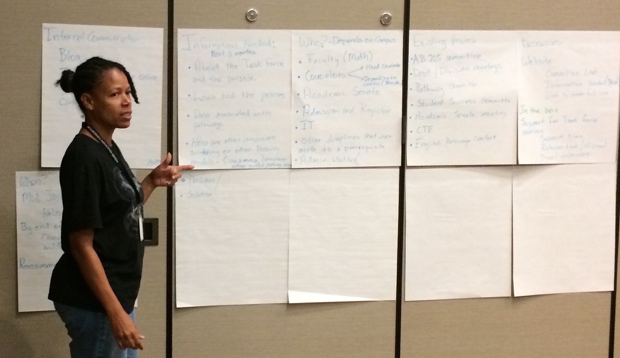The Mission
Central Valley Higher Education Consortium (CVHEC), in collaboration with the Charles A. Dana Center at The University of Texas in Austin, launched an initiative to improve students’ success and completion rates in mathematics at colleges and universities in the California Central Valley in 2017. Faculty from the participating institutions formed the Central Valley Math Pathways Task Force, which was charged with developing recommendations to fulfill the following mission, goal, and objectives of the math pathways initiative. The California Acceleration Project also contributes to the work with support on policy.
The mission and goal of the Task Force is to raise student completion rates at Central Valley colleges and universities by redesigning and creating pathways in transfer level mathematics, aligned with students’ programs of study, that provide clear direction for completing mathematics courses in a timely manner. The mission and goal will be achieved in accordance with legislation from the California Legislature (e.g., Student Success Act, Assembly Bill 705 codified as EDC § 78213) and executive orders from the California State University Chancellor (EO 1100 revised August 2017), including direction that mathematics courses with prerequisites reflect only the skills and knowledge required in the course.
Objectives
The objectives of the Task Force are to:
- Communicate the importance of better alignment of mathematics pathways and courses with programs of study.
- Identify and recommend well–defined math pathways from developmental to transfer-level courses, aligned with programs of study for certificates, AA/AS degrees and transfer degrees.
- Develop guidelines for corequisite courses and prerequisite courses one level below transfer, for various math pathways and in compliance with Assembly Bill 705 (EDC § 78213).
- Recommend evidence-based practices for placement, such as the Multiple Measures Assessment Project (MMAP) and advising in math pathways and courses that increase equitable access to programs of study.
- Research professional learning opportunities in innovative teaching strategies for mathematics faculty. These strategies will focus on using instructional delivery options, technologies, and tools to support student learning.
- Provide a venue for communication between area colleges and universities on articulation issues.
Read the CVHEC Math Task Force recommendations report published in summer 2018. Upon publication of the report, the Task Force transitioned to work to create the enabling conditions for implementation. The Dana Center continues to support these efforts with professional learning and technical assistance focused on designing co-requisite courses and improving transfer and applicability of math courses across the two- and four-year sectors.
Generous Support
The College Futures Foundation provides support for the Dana Center Mathematics Pathways and CVHEC regional work.








